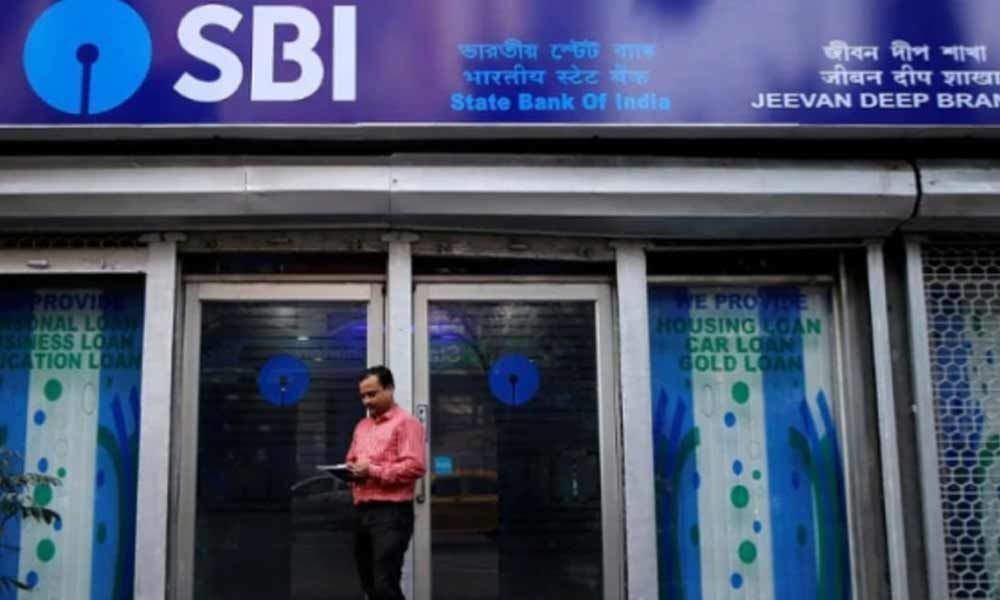Live
- Sanjha Utsav helps to empower self-help groups: MEPMA director
- 7 days of national mourning declared; state funeral for Dr. Manmohan Singh
- Chandrababu Mourns the Death of Former PM Dr. Manmohan Singh
- ‘RSS magazine’ contradicts Bhagwat on Sambhal dispute
- Human-made calamity in Delhi
- Harvesting Hope In Deserts
- India Bloc On A Shaky Ground
- Centre to celebrate Veer Bal Diwas nationwide
- CM for clear strategy to ensure Southern states get their due
- SCR cancels Sabarimala special trains citing low occupancy
Just In
In the last decade, bank fraud in India up by 2113%


Are forensic audits here to stay?
Mumbai: There seems to be a never-ending trail of fraud that is unravelling in India.
At the heart of this is the realisation that India did not use Satyam as learning to tighten its regulatory framework. Instead, it is the corporates that seem to have used it as a springboard to get bolder with their frauds.
In response to an RTI, the following data was released by the RBI, summing up the number of cases and the value of the fraud.
2008-09, 4,372 cases worth ₹1,860.09 crore.
2009-10, 4,669 cases worth ₹1,998.94 crore.
2010-11, 4,534 cases worth ₹3,815.76 crore
2011-12, 4,093 cases worth ₹4,501.15 crore.
2012-13, 4,235 cases worth ₹8,590.86 crore
2013-14, 4,306 cases worth ₹10,170.81 crore
2014-15, 4,639 cases worth ₹19,455.07 crore
2015-16, 4,693 cases worth ₹18,698.82 crore
2016-17, 5,076 cases worth ₹23,933.85 crore
2017-18, 5,916 cases worth ₹41,167.03 crore.
The number of frauds has not gone up as sharply as the audacity of each fraud, reveals Reena Wadhwani, of AIM corporate services, a boutique forensic firm with rich experience.
So, while there is a 35% jump in the number of frauds, there is a 2113% jump in the value of frauds. Part of the problem is that there are just a handful of audit companies and so many corporates; thousands of inexperienced professionals start looking at the books and they ask questions to the shareholders and seniors. It's very easy for them to manoeuvre their way and justify everything. Ideally audits should be enough, but the auditor is a vendor too, who needs the firm's business.
If we have to stem the tide, we have to use the current situation to empower the judiciary to take proper punitive action. And there are too many regulators and bodies with interconnected roles; for example, SEBI can bar auditors only from listed companies. ICAI can only act against individual auditors and not against the audit firm. NFRA, which came into existence last year and was meant to act against auditors and do away with legal anomalies, has a stronger set of powers:
it can penalise individual auditors and firms under the Companies Act. It can debar an individual or a firm for six months to 10 years. MCA has the power to ban auditors for five years from all listed and unlisted companies. But this section cannot lead to imprisonment of individual auditors. With so many diverse players, it is the lacunae in the interpretation of laws that must be bridged. There are far too many instances in the country on willful defaults, due to differences in interpretation.
A few key questions,
- A Is the evidence of wrong doing not strong enough for Judiciary to take action?
- B Is the Legal process too convoluted with perpetrators using the system to lengthen and tire it?
- C Can arbitration, on the basis of past precedence, be strengthened in order to speed up the legal process?
Another misconception in India is that information is not available publicly. There's a wealth of information, most of which is under RTI and if somebody is looking carefully you can find all the information to prevent the fraud or associating with such companies. Data is available but it's just not accessible For eg; even RBI, within their own system, may not have a single view of shareholder data, IT returns, asset data, GST returns data etc; If these are not integrated, then you do not have the bird's eye view needed to solve the problem. An inexperienced audit team may miss this perspective and fraudsters tend to take advantage of the same.
This is part of the reason why forensic audits are here to stay. It's a deeper dive exercise where you get into the finer transactions; especially for every inter-party transfer and reduce potential lapses.

© 2024 Hyderabad Media House Limited/The Hans India. All rights reserved. Powered by hocalwire.com






